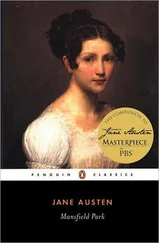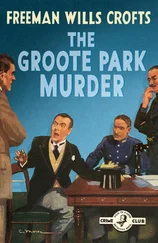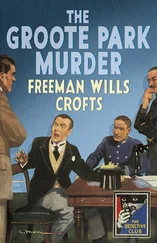" I will, now, never leave you more ," he stormed. " Look how tall and strong I am grown. These arms can now afford you support. They can, and shall, procure you subsistence ."
Rushworth was so totally unconscious of anything beyond the stage that he did not notice the uneasy movements of many of the audience, and it was not until Tom gave a decided and uneasy "hem’ that he was at all aware of Edmund’s presence, at which he immediately gave perhaps the very best start he had ever given in the whole course of his rehearsals.
"Ah — Norris! — my dear Norris! — " he cried, "you find us at a most interesting moment! Miss Price’s character has just been recounting her sad tale to her son. It was most affecting; we are fortunate indeed to have such an excellent Agatha, there is something so maternal in her manner, so completely maternal in her voice and countenance."
Mr Rushworth continued in the same eager tone, unmindful of Mr Norris’s expression as he turned to look at Miss Price. She, however, returned his gaze with a bold eye; even now, Mr Rushworth retained her hand, and the very circumstance which had occasioned their present embarrassment, was to her the sweetest support. Ever since the ball her manner to Edmund had been careless and cold, and she wanted only the certainty of a more eligible offer to break off an engagement that had now become a source of regret and disappointment, however public the rupture must prove to be.
The eyes of everyone present were still fixed on Miss Price, and only Mary was so placed as to see the expression of shock and alarm on Mrs Norris’s face. It was apparent at once that she was under the influence of a tumult of new and very unwelcome ideas. She looked almost aghast, but it was not the arrival of her son that was the cause of it; for many weeks now she had considered Mary to be the principal threat to a union that she had looked forward to for so long, and which was even now on the point of accomplishment. But in devoting so much energy to hindering Mary, and disparaging her, she had entirely overlooked another, and far more insidious development. There was now no room for error. The conviction that had rushed over her mind, and driven the colour from her cheeks, could no longer be denied: the true daemon of the piece was not the upstart, under-bred Mary, but the smooth and plausible Mr Rushworth, a man she had been flattering and encouraging all the while, thinking him to be the admirer of Maria, and a good enough match for her and her seven thousand pounds. But now Mrs Norris’s eyes were opened, and her fury and indignation were only too evident.
"If I must say what I think," she said, in a cold, determined manner, "it is very disagreeable to be always rehearsing. I think we are a great deal better employed, sitting comfortably here among ourselves, and doing nothing."
Edmund replied with an increase of gravity which was not lost on anyone present, "I am happy to find our sentiments on this subject so much the same, madam. There will be no more rehearsals."
There was indeed no question of resuming. Mr Rushworth clearly considered it as only a temporary interruption, a disaster for the day, and even suggested the possibility of the rehearsal being renewed after tea. But to Mary, the conclusion of the play was a certainty; the total cessation of the scheme was inevitably at hand, and the tender scene between herself and Mr Norris would go no further forward.
The price to be paid for the doubtful pleasure of private theatricals was in Mary’s thoughts the whole of the following day, and an evening of backgammon with Dr Grant was felicity to it. It was the first day for many, many days, in which the households had been wholly divided. Four-and-twenty hours had never passed before, since April began, without bringing them all together in some way or other. At the Park the evening passed with external serenity, though almost every mind was ruffled, and the music which Lady Bertram called for from Julia helped to conceal the want of real harmony. Maria kept to her room, complaining of a cold, while Fanny sat quietly with her needle, a smile of secret delight now and again playing about her lips. In the more retired seclusion of the White House, Mrs Norris gave way to a bitter invective against Rushworth, inciting her son to exert himself, it being within his power to remedy all these evils, if he would but act like a man, with fortitude and resolution. Edmund’s private feelings in the face of such a tirade may only be guessed at.
"I was sorry to hear that the play is done with," said Mrs Grant, when Henry and Mary joined her and Dr Grant in the breakfast-room the next morning. "The other young people must be very much disappointed."
"I fancy Yates is the most afflicted," said Henry with a smile. "He is gone back to Bath, but, he said, if there was any prospect of a renewal of Lovers’ Vows, he should break through every other claim. “From Bath, London, York, Heath Row — wherever I may be,” he announced, “I will attend you from any place in England, at an hour’s notice.”’ "I confess I did wonder at the Heath Row," he continued, helping himself to more chocolate. "Indeed I was not even sure at the time where he meant. It appears it is a small village some where to the west of London.Yates is thinking of buying a place there, but by all accounts the area is damp, low-lying and disposed to fog, and I therefore gave it as my opinion that it was unlikely much would ever be made of it."
"Still," said Mrs Grant, returning to the subject of the lost theatricals,"there will be little rubs and disappointments every where,but then, if one plan of happiness fails,human nature turns to another; if the first calculation is wrong, we make a second better; we find comfort some where."
Mrs Grant’s confidence proved to be well founded, for the weather clearing, the excursion to Compton was reinstated, and the next time they all met together at the Park an early day was named, and agreed to. Lady Bertram having a slight cold, she was persuaded to stay at home by her sister. At any other time Mrs Norris would have very thoroughly relished the means this afforded her of directing the arrangement of the whole scheme; now, all her considerable efforts would be needed to keep Mr Rushworth away from Fanny, while throwing him, if she could, in the way of Maria.
"You must excuse Lady Bertram on this occasion, Mr Rushworth," she said coolly, "and accept of the girls and myself without her."
Julia began to protest, saying she had just as rather not go at all, but her aunt at once addressed her in a whisper both angry and audible: "What a piece of work here is about nothing — I am quite ashamed of you, Julia, to make such a difficulty when the whole party has been arranged for your pleasure and convenience — accept the invitation with a good grace, and let us hear no more of the matter."
"Pray do not urge her, madam," said Edmund. "I am sure my cousin will find herself quite equal to the visit, when the day comes."
Mrs Norris said no more, contenting herself with an angry look before turning to the subject of transport. "Your barouche will hold four perfectly well, Mr Rushworth, independent of the box, on which one might go with you. And as for the young gentlemen, why, they can go on horseback."
"But why is it necessary," said Edmund, "that Rushworth’s carriage, or his only should be employed?"
"What!" cried Maria quickly. "Go box’d up five in a postchaise in this weather, when we may have seats in a barouche! No, my dear cousin, that will not quite do." After the ruin of Lovers’ Vows, and the wreck of her own hopes of Rushworth, Maria had confined herself to the house, seeing nobody, but for some days past she had begun to affect a brittle and reckless gaiety that seemed precisely calculated to convey an indifference Mary could not believe she really felt. She appeared to have decided that even if the loss of James Rushworth had destroyed her happiness, neither he nor her cousin should know that they had done it. She would not allow them to think of her as pining in a self-imposed solitude for them .
Читать дальше












